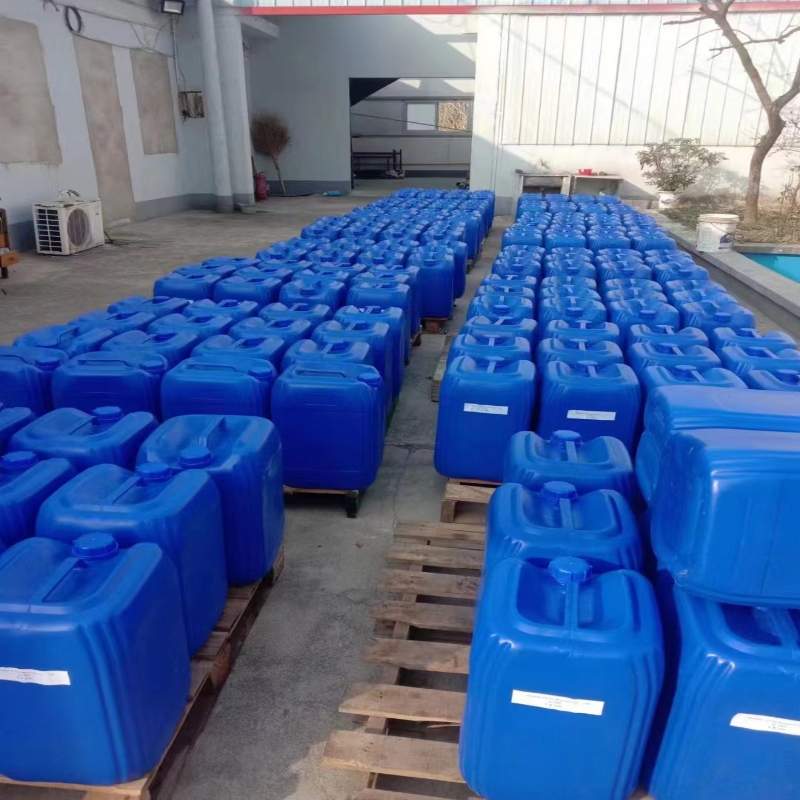-
Categories
-
Pharmaceutical Intermediates
-
Active Pharmaceutical Ingredients
-
Food Additives
- Industrial Coatings
- Agrochemicals
- Dyes and Pigments
- Surfactant
- Flavors and Fragrances
- Chemical Reagents
- Catalyst and Auxiliary
- Natural Products
- Inorganic Chemistry
-
Organic Chemistry
-
Biochemical Engineering
- Analytical Chemistry
-
Cosmetic Ingredient
- Water Treatment Chemical
-
Pharmaceutical Intermediates
Promotion
ECHEMI Mall
Wholesale
Weekly Price
Exhibition
News
-
Trade Service
EU member states recently reached an agreement on setting a price cap of $60 per barrel on Russian seaborne oil exports, and the G7 and Australia also announced that they will implement the same price limit policy with the EU, which will take effect
as soon as December 5.
Industry insiders believe that whether the price limit mechanism can be effective depends largely on the reaction
of buyers in major oil-producing countries and international markets.
If Russia refuses to accept and stops exporting oil to countries that enforce price limits, this forced intervention in the market price limit mechanism may fail, and will bring new uncertainty to the supply side of the market, increase supply shortages and risk oil prices, and the European economy and people's livelihood, which is already in energy trouble, suffering from high inflation and sliding to the brink of recession, may be hit
hard.
The effect of the limit price has been questioned
According to this price limit mechanism, if the price of Russian crude oil sold to third countries is higher than the ceiling level, then enterprises in the EU and the G7 will be prohibited from providing insurance, financial and other services
for Russian crude oil transportation.
According to the agreement, the EU will review the operation of the limit mechanism every two months in response to market changes and ensure that the price ceiling is at least 5%
below the average market price of Russian oil products.
The European Council issued an announcement on the 3rd that the introduction of a price cap on Russian oil will limit the price surge driven by abnormal market conditions, significantly reduce Russian oil revenues, and reduce the adverse impact
on energy supplies in third countries.
However, industry insiders are generally skeptical about whether the price limit mechanism can work
.
Simone Tagliapetra, an energy policy expert at the Bruegel Institute, a Belgian think tank, said that the $60 per barrel price cap will not have much impact on Russia's finances, which is very close to the recent market price
of Russian Urals crude oil.
Nguyen Phuc Vinh, an energy expert at the Jacques Delors Institute, a Paris-based think tank, said the response of oil-producing countries and buyers in the international market is crucial
.
For the EU's price limit measures, Russia has made it clear that it will not accept
them.
Russian Deputy Prime Minister Alexander Novak previously said that Russia will not supply oil to countries that set price caps, regardless of whether the price cap is $60 per barrel or any other price, which is interference
with market mechanisms.
Konstantin Simonov, general director of Russia's National Energy Security Fund, believes that the price cap is a mechanism
aimed at cracking down on suppliers.
Far from solving the energy shortage it faces, this will put pressure on global energy markets and create chaos
.
OPEC members and non-OPEC oil producers "OPEC +" held the 34th ministerial meeting
on the 4th.
According to media reports here, many officials attending the meeting believe that the West's price limit on Russian oil will not achieve good results, and the implementation of price limit may form a "buyer cartel"
.
Increased risk of supply shortages
Ivan Abramov, deputy chairman of the Economic Policy Committee of the Russian Federation Council (upper house of parliament), said on the 3rd that setting a price ceiling on Russian oil will lead to a sharp rise
in global oil prices.
Russia will not comply with the price ceiling of $60 per barrel, nor will it sell oil to countries that limit the price to Russia, but only to those willing
to cooperate on mutually beneficial terms.
Zhang Longxing, director of the oil product division of the Shanghai Oil and Gas Trading Center, told reporters that the EU wants to limit Russian oil export revenues and prevent Russian oil supply
cuts.
At present, the EU has played its cards, and the follow-up depends on how Russia countermeasures, if Russia reacts violently and reduces its own production, the market faces the risk of supply interruption, and oil prices will rise
.
Commerzbank predicts that the EU embargo and price restrictions on Russian oil may lead to a significant tightening of the oil market in early 2023, and the price of London Brent crude oil futures may recover to $
95 per barrel in the coming weeks.
Igor Yushkov, chief analyst of Russia's National Energy Security Foundation, believes that Russia has made it clear that it will not export oil to countries that implement price caps, which means that Russia's foreign exports may decrease
.
Against the backdrop of major producers deciding to maintain the set production cut targets, global supply will tighten further, pushing oil prices further up, possibly even reaching $
120 to $150 per barrel.
The EU economy is in danger of being swept away
Observers believe that Europe is currently facing the great challenges
of energy crisis, high inflation and recession.
If the price limit trigger a Russian countermeasure and further change the trend of the energy market, it may eat into the European economy
.
The British "Economist" magazine recently published an article pointing out that Western sanctions against Russia such as oil price limits are not a "panacea"
.
As the world's major oil producer, if Russia cuts oil exports in the future due to Western price restrictions, it may lead to a sharp rise in global oil prices, and Europe will eventually suffer the consequences
.
The energy crisis and high inflation are leading to a continued deterioration
in the European economic outlook.
Soaring energy prices have hit European industry hard, while investment expectations are weakening
as interest rates rise and uncertainty about the economic outlook increases.
The European Commission's recent Autumn 2022 Economic Forecast report shows that the economies of the European Union, the eurozone and most member states are expected to fall into recession in the fourth quarter of this year, and economic activity will continue to shrink
in the first quarter of next year.
The Wall Street Journal reported that the oil market is more globalized than natural gas, and if the market repeats the European gas crisis, the scope will be wider
.
The more the oil cap hurts Russia, the greater the risk of backlash from the mechanism
.







